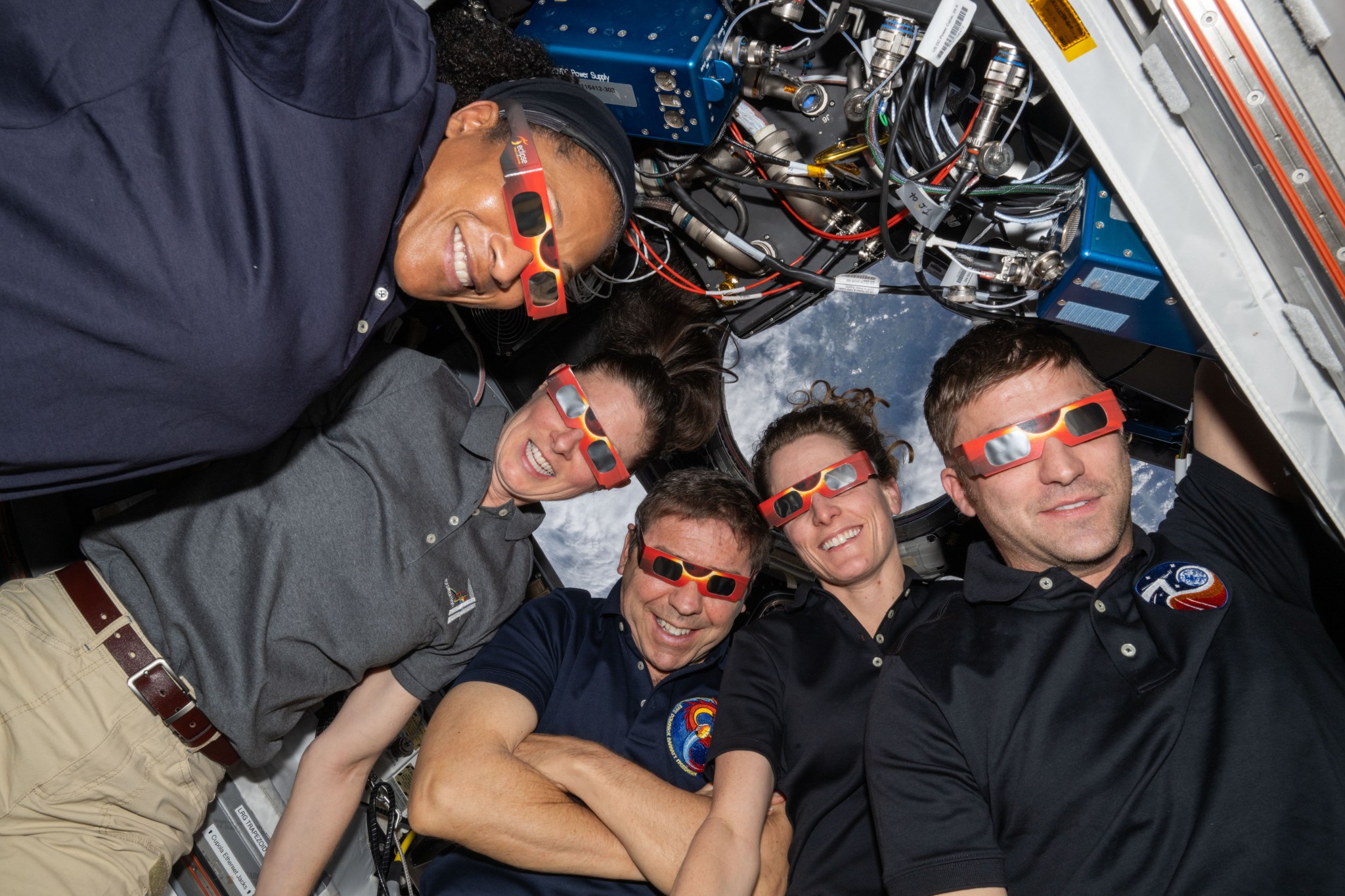Arizona, New York
Students to Hear from NASA Astronauts Aboard Station
MAY 09, 2024 MEDIA ADVISORY M24-065 (March 26, 2024) — Five NASA astronauts wear eye-protecting specs in anticipation of viewing the April 8 solar eclipse from the International
Space Station’s cupola. Credits: NASA
Students from Arizona and New York will have separate opportunities next week to hear from astronauts aboard the International
Space Station.
At 12:10 p.m. EDT on Tuesday, May 14, NASA astronauts Jeanette Epps and Tracy C. Dyson will answer prerecorded student questions from Sunnyside Unified School District in Tucson, Arizona,
in partnership with the TRiO Upward Bound Program, PIMA Community College, Desert Vista Campus. Participating students are first-generation college bound students from underserved communities, and this opportunity is intended to help spread awareness of Science,
Technology, Engineering, and Math (STEM) careers and inspire students to pursue related degrees.
The space-to-Earth call will stream live on NASA+,
NASA Television, the NASA app, and the agency’s website.
Media interested in covering the Arizona event should RSVP no later than 5 p.m. on Friday, May 10, by contacting Danny Pacheco at dapacheco@xxxxxxxx or
520-286-7771.
At 11:40 a.m. on Thursday, May 16, NASA astronaut Jeanette Epps will answer prerecorded student questions from P.S. 28 The Thomas Emanuel Early Childhood Center in Corona, New York,
in partnership with the New York Hall of Science. Following the live event, the center will host 200 first and second grade students for a one-hour interactive “Living in Space” learning opportunity.
Media interested in covering the New York event should RSVP no later than 5 p.m. on Tuesday, May 14, by contacting Nicole Casamento at ncasamento@xxxxxxxxx or
917-302-9242.
The space-to-Earth call will air live on NASA+,
NASA Television, the NASA app, and the agency’s website.
For more than 23 years, astronauts have continuously lived and worked aboard the space station, testing technologies, performing science, and developing skills needed to explore farther
from Earth. Astronauts living aboard the orbiting laboratory communicate with NASA’s Mission Control Center in Houston 24 hours a day through SCaN (Space
Communications and Navigation) Near Space Network.
Important research and technology investigations taking place aboard the International Space station benefits people on Earth and lays the groundwork for other agency missions. As part
of NASA’s Artemis campaign, the agency will send astronauts to the Moon to prepare for future human exploration of Mars. Inspiring Artemis Generation explorers and ensuring the United
States will continue to lead in space exploration and discovery.
See videos and lesson plans highlighting space station research at:
https://www.nasa.gov/stemonstation
-end- |

